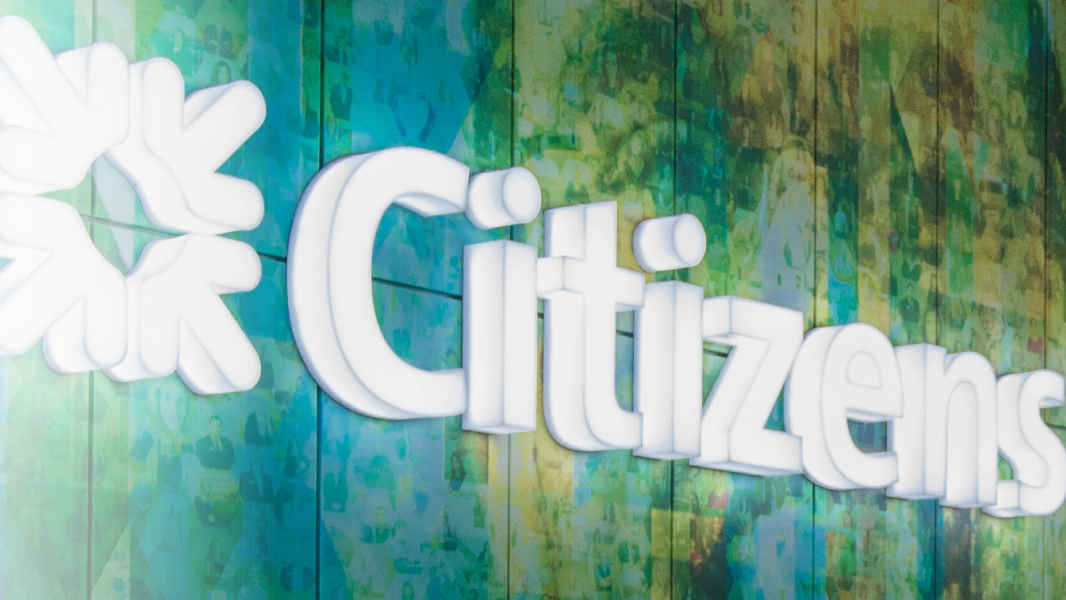Generational wealth in Black communities: Insights from trusted advisors

Key takeaways
- Generational wealth can provide future generations of Black families with greater economic security and upward mobility.
- Ownership can be a pathway to building wealth, but gaps remain in information and access.
- Banks play a critical role in helping to bridge the gap by providing access and trusted advice.
Black Americans still possess only 4% of the country's wealth, despite comprising 14% of the population. Yet, the median net worth of Black households in the United States increased 60% from 2019 to 2022.
By continuing this wealth-building momentum and passing it on to the next generation, Black communities can achieve greater upward mobility, ultimately helping to narrow the wealth gap.

Inspiring Wealth for Generational Success
Inspiring generational wealth creates opportunities for future generations. Leaders at Citizens speak about the impact of wealth and share strategies for lasting financial success.
Video
However, only about 13% of Black Americans have reported receiving an inheritance.
Even with systemic barriers and gaps in economic opportunities, some strategies can help those in a position to do so build their legacy and make a positive impact on future generations.
Larricia Lumpkins, Senior Vice President, Consumer Banking, says that long-term thinking about saving and investing is crucial.
"When I think about my kids and the legacy that I want to leave behind, I realize it's not only about the money I make," she says. "It's about what I save. It's what I give, it's what I invest, and it's being strategic about what I am doing." Dameon Philpotts, Senior Vice President, Private Bank COO, also emphasizes the value in making strategic decisions about your earnings.
"Once you have started to make progress, it's important to think ahead. At a certain point in your professional career, it's not about paying yourself anymore," he says. "It's about what you can create to leave for future generations. What's your legacy, and how do you close the gap so that your kids have an opportunity to start in a better place?"
'The cornerstone of wealth building'
Philpotts stresses the importance of managing debt and earning credit as keys to building wealth, as well as acquiring assets like a home, which can provide the owner with capital, equity and greater financial flexibility.
Home ownership has historically been one of the most reliable ways to build wealth in the United States. According to the National Association of Realtors, 44.1% of Black Americans are homeowners — a number that has been climbing but is still lower than other races.
As Black families contend with redlining (denying loans and credit based on race), a lack of access to credit and other discriminatory practices that have excluded them from home-buying opportunities, it's essential that all avenues to ownership are available and accessible.
"My aunt bought her first home at age 68," begins Lumpkins. "She always earned a good income. She always paid her bills. Then someone at her bank took an interest in her and asked, 'Why don't you buy a house?' She just never thought she could. They began to have a conversation about how she might achieve that. Once she had a very clear path forward, it became a goal she wanted to achieve."
The message is clear: This information gap must close for home ownership to become more accessible to everyone, helping to build the foundation for lasting legacies.
“Once you become a homeowner, you have something that you own, something that you value, that becomes a pathway to create wealth and a legacy to pass on to your children," Lumpkins says. "One of the best things that we can do as bankers is help people realize that their dream of home ownership is really unlocking that pathway. It really can be the cornerstone of wealth building."
Business ownership also offers a powerful avenue to build wealth. Entrepreneurship allows for greater control over various aspects of financial and professional lives, which can be particularly impactful for those who face systemic barriers to financial resources.
Businesses in Black communities can also provide jobs, contributing to the local economy and leading to both greater economic stability and the creation of wealth for employees.
According to the U.S. Census Bureau, nearly 200,000 Black and African American-owned businesses in the United States earn $211.8 billion annually and employ 1.6 million people. However, Black entrepreneurs are more likely to be denied business loans and less likely to receive venture capital investments and other financing opportunities. This is why initiatives like small business loans, Citizens Small Business Community Champions and initiatives to employ suppliers as part of our overall efforts toward inclusion are so critical to narrowing the gap.
"When you think about helping people achieve their goals and their dreams, that is the fabric of the community. Communities are built from people," says Lumpkins. "I think of entrepreneurship and what a bank can do to help entrepreneurs grow their dreams and what they want their livelihood to be."
Building bridges in banking
While progress remains to be made, fortunately, opportunities do exist today. Raising awareness, providing education about the financial resources available and delivering trusted advice is essential to financial freedom and empowerment in making informed decisions about wealth-building opportunities.
"As advisors, whether we're talking about retail bankers or those in the private bank, we have solutions for these hurdles. We can really help them get where they want to go next and figure out what that next step is," Philpotts says. Educating people about available options is key, fostering an understanding where information is shared within communities explains Lumpkins.
"Empowering clients with knowledge, so they can walk out and tell their neighbor, 'Hey, this is what it means to have a credit card. This is what an overdraft is.' And so on," she says. "We want to make sure people feel comfortable. We talk about advice, awareness and being able to help. It's OK that you don't know. We can fill in the blanks."
But ultimately, it's about developing and maintaining relationships with customers. The path to building wealth is not one size fits all. Personalized banking helps each customer understand where they are now and where they want to go. It assists in charting a course for those who don't know where they want to go next.
"I'm excited about meeting people where they are to help them receive the information they need to be successful," Lumpkins says. "As we continue to travel down this path, I'm very optimistic."
Committed to closing gaps for the communities we serve
Citizens remains committed to serving as a trusted partner and active advocate for an inclusive workplace and society. By aligning with the needs and interests of the communities where we live and work, we strive to build a more inclusive and sustainable future for all.
"Citizens as a whole, and just thinking about community and how we help people, we do a lot very deliberately," says Philpotts. "Some of the things that we do, with job creation and workforce management, really do help create opportunity."
Related topics

Fostering strong communities
We work to strengthen the communities where we live and work.

Creating a culture of inclusion
Learn about our commitment to inclusion for our colleagues, customers and communities.

Promoting sustainability & impact
Our commitment to continual progress is woven into the fabric of our business, as we work to create a thriving, sustainable, inclusive future for all.
© Citizens Financial Group, Inc. All rights reserved. Citizens Bank, N.A. Member FDIC
Disclaimer: The information contained herein is for informational purposes only as a service to the public and is not legal advice or a substitute for legal counsel. You should do your own research and/or contact your own legal or tax advisor for assistance with questions you may have on the information contained herein.
